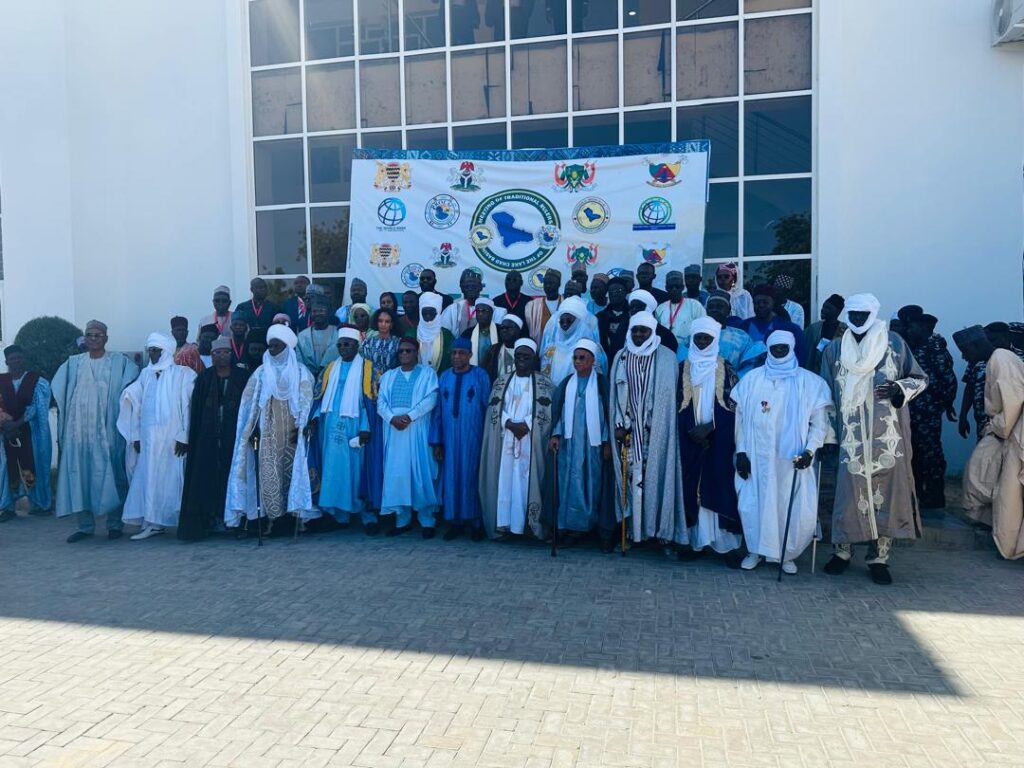Traditional rulers from Cameroon, Chad, Niger and Nigeria are organizing across borders to bolster the fight against extremism and terrorism in the Lake Chad Basin.
The first Regional Meeting of Traditional Rulers of the Lake Chad Basin took place on January 27 and 28 in Maiduguri, Nigeria, with leaders resolving to tackle root causes of insecurity, including extreme poverty, unemployment, inequality, violence against women and the lack of cross-border cooperation.
“The ultimate goal of our efforts is to create a resilient Lake Chad Basin region, a region where people can live in peace, access opportunities and build better futures for their children,” Lake Chad Basin Commission Executive Secretary Mamman Nuhu said.
Nuhu, who also is the Multinational Joint Task Force head of mission, clenched his fist to emphasize the importance of local support for the broad regional structures of the commission.
“It is very important that local authorities continue to take ownership of the territorial action plan, which was produced by state governors,” he said on January 29. “That is the only way we can ensure local buy-in. That is the first lesson after five years of implementing the plan. The second lesson is the need for cross-border coordination. Terrorism does not respect international boundaries. That is what we have been doing during the meeting of traditional rulers and during this whole forum, is to create these cross-border relationships.”
About 35 monarchs met for two days before participating in the fifth edition of the Lake Chad Basin Governors’ Forum from January 29 through 31. They all have suffered the scourge of the Boko Haram insurgency since it began in 2009.
The Emir of Fika, Muhammadu Idrissa, who also is the chairman of the Yobe State Council of Traditional Rulers, led the meeting. He underscored the need to confront “the insecurity bedeviling the region” and to restore order and development.
“We are very desirous of strengthening amity among us to help each other in checking suspicious activities in our respective communities and such other things as proliferation of small arms across our communities,” he said, according to news website Business Day Nigeria. “We will be looking into community-based initiatives, advocacy for projects that promote education, livelihoods and support to communities.”
At the end of their two-day meeting, the traditional rulers released a statement pledging to develop local frameworks for dialogue with an emphasis on young people, women and marginalized groups. The group also said it would establish frameworks for conflict resolution related to trade and access to natural resources.
“We commit to strengthening our role as custodians of the culture and tradition, peace, preventing and managing community conflicts and promoting dialogue and reconciliation between the parties,” they said in a statement. “We strongly condemn all forms of violence against women, whether physical, psychological, economic or cultural. We are committed to raising awareness in our communities about women’s rights and promoting respectful and equal behaviors.”
The monarchs also agreed to help establish listening and assistance centers and integrate women into mediation and decision-making processes, a recognition of their essential role in peace-building.
Reading Nigerian President Bola Tinubu’s prepared remarks, Vice President Kashim Shettima said that although military might is necessary to contain the threats posed by Boko Haram and the Islamic State group, the overall response must be multifaceted.
“They must be complemented by strategies that address the root causes of insecurity: poverty, inequality and the lack of opportunities for our youth,” he said. “Power’s true essence lies not in its possession but in its application. Hard power may secure borders, but it is soft power through diplomacy, culture and shared values that builds bridges and binds us together.”

